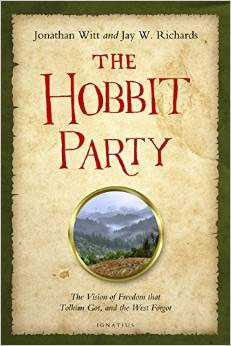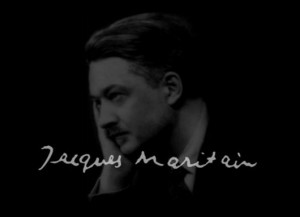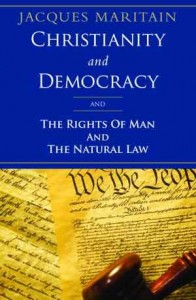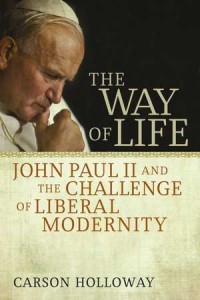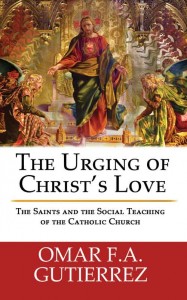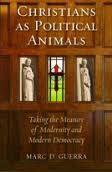[powerpess]
“How the West Really Lost God: A New Theory of Secularization” is a phenomenal book on this subject.
Mary Eberstadt 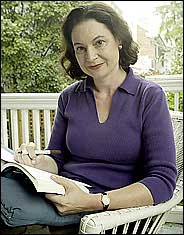 delivers a compelling theory about the decline of Christian religion in the Western world. By the analysis of data on the family,  from pre-Revolutionary France to contemporary culture in the West, she demonstrates how the natural family is the prime nurturing force for Christianity in a society.  When that family structure dissolves, so does the Christian religion in a culture and the rise of secularization is fostered.  While presenting the problem, she also offers hope for the future.  Another  fascinating and provocative read. by Mary Eberstadt!
delivers a compelling theory about the decline of Christian religion in the Western world. By the analysis of data on the family,  from pre-Revolutionary France to contemporary culture in the West, she demonstrates how the natural family is the prime nurturing force for Christianity in a society.  When that family structure dissolves, so does the Christian religion in a culture and the rise of secularization is fostered.  While presenting the problem, she also offers hope for the future.  Another  fascinating and provocative read. by Mary Eberstadt!
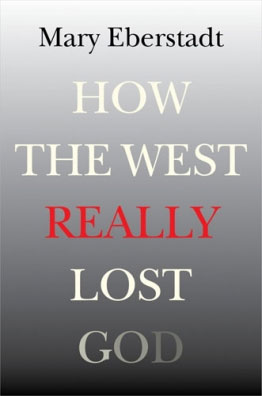 You can find the book here
You can find the book here
— Mary Ann Glendon, author of The Forum and the Tower: How Scholars and Politicians Have Imagined the World from Plato to Eleanor Roosevelt
Tags: catholic, catholic podcast, catholic prayer
This entry was posted on Saturday, January 17th, 2015 at 6:08 am
You can follow any responses to this entry through the RSS 2.0 feed.
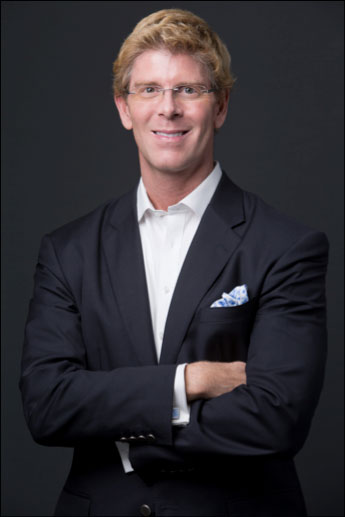 What fun!  I love reading and discussing great authors and their work (especially if it’s someone of the caliber of J. R. R. Tolkien) . Throw into the mix the fundamentals of Catholic Social teaching, a bit of religion, history and politics  and suddenly you have a party…“The Hobbit Party: The Vision of Freedom That Tolkien Got, and the West Forgot “ to be exact.  Much has written about Tolkien’s religious connotations in “The Hobbit” and “Lord of the Rings”, but authors Jay Richards and Jonathon Witt delve interestingly enough into the political aspects of the novels.  For fans of the books (and/or the movies for that matter), this a wonderful source of light which illuminates yet another facet of Tolkien’s incredible literary diamond.  Dr. Jay Richards is always great to talk with and what a joy to engage on this topic.
What fun!  I love reading and discussing great authors and their work (especially if it’s someone of the caliber of J. R. R. Tolkien) . Throw into the mix the fundamentals of Catholic Social teaching, a bit of religion, history and politics  and suddenly you have a party…“The Hobbit Party: The Vision of Freedom That Tolkien Got, and the West Forgot “ to be exact.  Much has written about Tolkien’s religious connotations in “The Hobbit” and “Lord of the Rings”, but authors Jay Richards and Jonathon Witt delve interestingly enough into the political aspects of the novels.  For fans of the books (and/or the movies for that matter), this a wonderful source of light which illuminates yet another facet of Tolkien’s incredible literary diamond.  Dr. Jay Richards is always great to talk with and what a joy to engage on this topic.
[powerpress]
You can find the book here
“J. R. R. Tolkien is one of the most widely read but arguably misunderstood of the twentieth century’s literary geniuses. In this book, Witt and Richards lift the veil on Tolkien and reveal a political and, yes, economic thinker who constantly surprises readers and whose insights are even more valuable for our time than his own. Tolkien fans who read this book will never think about this great author the same way again.”
— Samuel Gregg, Research Director, Acton Institute Author, Becoming Europe
“This book is a ‘drop everything and read it’ book. Richards and Witt have opened up an often ignored aspect of Tolkien’s work, namely the sense in which his myth bespeaks a political and economic order that stands in stark, even violent, contrast to the presiding power structures that dominate this unhappy globe. It should be made required reading in all courses in political philosophy. It’s a glorious book.”
— Thomas Howard, Author, Dove Descending: A Journey into T. S. Eliot’s “Four Quartets”
This entry was posted on Monday, December 1st, 2014 at 5:28 am
You can follow any responses to this entry through the RSS 2.0 feed.
Dr. Raymond Dennehy was a delight to talk to about the work and influence of 20th century French philosopher 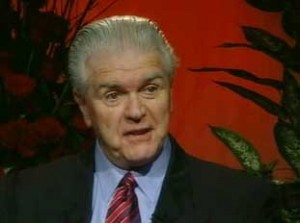 Jacques Maritain.  Ignatius Press has published in a special one volume set,  Maritain’s “Christianity and Democracy and the Rights of Man and the Natural Law”, which provides key insights for Christians in shaping the political and social orders.
Jacques Maritain.  Ignatius Press has published in a special one volume set,  Maritain’s “Christianity and Democracy and the Rights of Man and the Natural Law”, which provides key insights for Christians in shaping the political and social orders.
[powerpress]
Jacques Maritain was one of the principal exponents of Thomism, the philosophy of Saint Thomas Aquinas, in the modern world. He lived for many years in the United States, and taught at Princeton University and Columbia University. After WWII, he served as the French ambassador to the Vatican. He also helped draft the United Nations Universal Declaration of Human Rights (1948).
 You can find the book here
- “Maritain was one of the pioneers of the Catholic human rights revolution, which changed the course of 20th century politics. While helping the Church through a genuine development of social doctrine, Maritain helped forge some of the tools that eventually broke through the Berlin Wall.†– George Weigel, Ethics and Public Policy Center
“In these passionate words one encounters the mind of Maritain in all its vigor and variety. His reflections on the challenges facing the world’s democratic experiments – starkly realistic yet infused with Christian hope – are as timely today as they were seventy years ago.†– Mary Ann Glendon, Harvard University
“This has been one of my all-time favorite ‘David books’ – those little books that take down Goliaths. Almost single-handedly, Maritain launched a hypothesis on the Christian (and Jewish) origins of the foundational axioms of democracy, of which many atheists are now coming to admit the truth. The sheer power of his hypothesis is more evident with every passing year. The republication of this classic is therefore bound to kindle longing for a deeper, more just reevaluation.†– Michael Novak, American Enterprise Institute
Tags: catholic, catholic podcast, catholic prayer, cathollc spirituality, Jacques Maritain, Michael Novak, modern democracy, philosophy, political philosophers, Raymond Dennehy, work
This entry was posted on Saturday, July 12th, 2014 at 12:06 am
You can follow any responses to this entry through the RSS 2.0 feed.
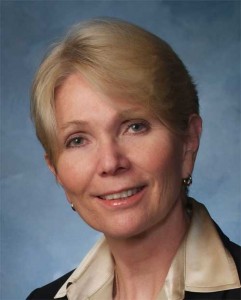 “Non-Negotiable: Essential Principles of a Just Society and Humane Culture” by Sheila Liaugminas is a fantastic book which clearly articulates the essence of Catholic Social Doctrine, especially those teachings which touch the lives of Catholic Americans. She addresses important challenges many face in the arena of politics and cultural relativism and offers solid guidance in the struggle to restore respect for human dignity.   Excellent!
“Non-Negotiable: Essential Principles of a Just Society and Humane Culture” by Sheila Liaugminas is a fantastic book which clearly articulates the essence of Catholic Social Doctrine, especially those teachings which touch the lives of Catholic Americans. She addresses important challenges many face in the arena of politics and cultural relativism and offers solid guidance in the struggle to restore respect for human dignity.   Excellent!
[powerpress]
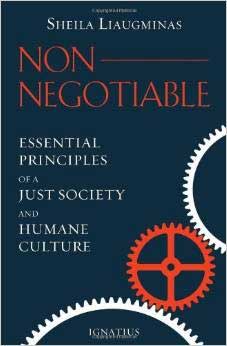 You can find the book here
You can find the book here
“I truly admire Sheila Liaugminas. She is an outstanding journalist. We have dialogued extensively on her radio program about the rights of conscience and the protection of what we call our ‘first principles.’ Sheila has laid out in great breadth and depth the need for a revived understanding of the essentials of human dignity and societal organization.”
– Jeff Fortenberry, Member of Congress
“Both Pope Benedict XVI and Pope Francis have spoken of the ‘dictatorship of relativism’ in our world today and its negative impacts not just on our faith, but to the common good of society. Shelia Liaugminas draws upon the universal principle of natural human rights and dignity to address several contemporary moral issues which have suffered as a result of a relativistic mindset. Her book is a valuable resource in the struggle to restore a true, just and virtuous society.”
– Most Reverend Thomas Paprocki, Bishop of Springfield, Illinois
Tags: catholic, catholic podcast, catholic prayer, cathollc spirituality
This entry was posted on Tuesday, June 24th, 2014 at 4:31 pm
You can follow any responses to this entry through the RSS 2.0 feed.
WOL6 – Episode 6-  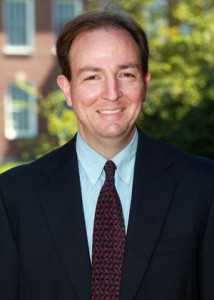 “Democracy in America” by Alexis de Tocqueville is the focus of this episode.  What is “democracy” and why did it work it in the American experience.  There is much that is good and sound in the founding of “modern western democracy”, but what has happened in the view of “Evangelium Vitae” that has possible knocked it off track.
“Democracy in America” by Alexis de Tocqueville is the focus of this episode.  What is “democracy” and why did it work it in the American experience.  There is much that is good and sound in the founding of “modern western democracy”, but what has happened in the view of “Evangelium Vitae” that has possible knocked it off track.
The Way of Life, Carson Holloway examines the fundamental philosophers of modernity-from Hobbes to Toqueville-to suggest that St. John Paul II’s critique of modernity is intended not to reject, but to improve. Thus, claims Holloway, it is appropriate for liberal modernity to attend to the Pope’s thought, receiving it not as the attack of an enemy but as the criticism of a candid friend.
  For other episodes in the series visit Dr. Holloway’s Discerning Hearts page
This series is based on Dr. Holloway’s book “The Way of Life”
Tags: catholic, catholic podcast, catholic prayer, cathollc spirituality, st. john paul ii
This entry was posted on Tuesday, June 24th, 2014 at 12:58 pm
You can follow any responses to this entry through the RSS 2.0 feed.
WOL5 – Episode 5-   The  “Declaration of Independence” and American political philosophy and what it involves.  What is the “natural law” and how it applies to political thought.  There are principals of political “rights and wrongs” and these are the foundations for political practice (which are not always followed by the human person).  What are the “self-evident” truths?  What are “natural rights”?  Why did this system of thought survive given the American experience compared to the results of the French revolution and its theories?  Both might be “children” of the Enlightenment, but one was hostile to Christianity, the other embraced it. [powerpress]
The  “Declaration of Independence” and American political philosophy and what it involves.  What is the “natural law” and how it applies to political thought.  There are principals of political “rights and wrongs” and these are the foundations for political practice (which are not always followed by the human person).  What are the “self-evident” truths?  What are “natural rights”?  Why did this system of thought survive given the American experience compared to the results of the French revolution and its theories?  Both might be “children” of the Enlightenment, but one was hostile to Christianity, the other embraced it. [powerpress] 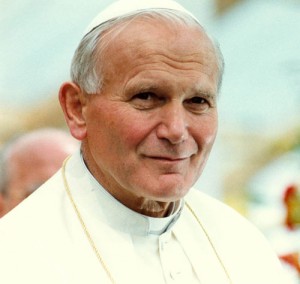
The Way of Life, Carson Holloway examines the fundamental philosophers of modernity-from Hobbes to Toqueville-to suggest that St. John Paul II’s critique of modernity is intended not to reject, but to improve. Thus, claims Holloway, it is appropriate for liberal modernity to attend to the Pope’s thought, receiving it not as the attack of an enemy but as the criticism of a candid friend.
  For other episodes in the series visit Dr. Holloway’s Discerning Hearts page
This series is based on Dr. Holloway’s book “The Way of Life”
Tags: catholic, catholic podcast, catholic prayer, cathollc spirituality
This entry was posted on Friday, May 16th, 2014 at 10:46 am
You can follow any responses to this entry through the RSS 2.0 feed.
WOL4 – Episode 4 –   The Scottish Enlightenment…what was it and why was it such an important movement to understand.  The influence of David Hume - Scottish philosopher, historian, economist, and essayist.  The flaw in Hume’s philosophy –  that self-interest is  stronger than sympathy, and if morality, according to Hume’s thinking,  is derived from the passions, then ultimately self-interest is a greater worth and motivator than sympathy.  This conflicts with the Christian understanding of the “Golden Rule” and fuels the Culture of Death…those in need become very vulnerable in the culture.
The Scottish Enlightenment…what was it and why was it such an important movement to understand.  The influence of David Hume - Scottish philosopher, historian, economist, and essayist.  The flaw in Hume’s philosophy –  that self-interest is  stronger than sympathy, and if morality, according to Hume’s thinking,  is derived from the passions, then ultimately self-interest is a greater worth and motivator than sympathy.  This conflicts with the Christian understanding of the “Golden Rule” and fuels the Culture of Death…those in need become very vulnerable in the culture.
[powerpress]
The Way of Life, Carson Holloway examines the fundamental philosophers of modernity-from Hobbes to Toqueville-to suggest that John Paul II’s critique of modernity is intended not to reject, but to improve. Thus, claims Holloway, it is appropriate for liberal modernity to attend to the Pope’s thought, receiving it not as the attack of an enemy but as the criticism of a candid friend.
 Â
For other episodes in the series visit Dr. Holloway’s Discerning Hearts page
This series is based on Dr. Holloway’s book “The Way of Life”
Tags: Carson Holloway, David Hume, Scottish Enlightenment
This entry was posted on Monday, April 21st, 2014 at 6:00 am
You can follow any responses to this entry through the RSS 2.0 feed.
WOL3 – Episode 3 -The influence of Thomas Hobbes and his role as the father of modern-day liberalism.   Absolute monarchy and the tyranny of “unlimited” government.  The difference between Divine-right monarchy and Absolute monarchy, and the legitimacy thought behind “dictatorship”.  How this affects ruling systems in history, and it’s influence on the “Culture of Death”.  Who was John Locke?  The Law of Nature and it’s obligations according to Locke’s thought.  The fundamental rule to preserve oneself.  Bl. John Paul’s response to that thought…to respect the moral law and give of oneself.
Absolute monarchy and the tyranny of “unlimited” government.  The difference between Divine-right monarchy and Absolute monarchy, and the legitimacy thought behind “dictatorship”.  How this affects ruling systems in history, and it’s influence on the “Culture of Death”.  Who was John Locke?  The Law of Nature and it’s obligations according to Locke’s thought.  The fundamental rule to preserve oneself.  Bl. John Paul’s response to that thought…to respect the moral law and give of oneself.
[powerpress]
The Way of Life, Carson Holloway examines the fundamental philosophers of modernity-from Hobbes to Toqueville-to suggest that John Paul II’s critique of modernity is intended not to reject, but to improve. Thus, claims Holloway, it is appropriate for liberal modernity to attend to the Pope’s thought, receiving it not as the attack of an enemy but as the criticism of a candid friend.
 Â
For other episodes in the series visit Dr. Holloway’s Discerning Hearts page
This series is based on Dr. Holloway’s book “The Way of Life”
Tags: catholic, catholic podcast, catholic prayer
This entry was posted on Thursday, April 10th, 2014 at 1:43 pm
You can follow any responses to this entry through the RSS 2.0 feed.
WOL2 – Episode 2 – What is “Evangelium Vitae (The Gospel of Life)”?  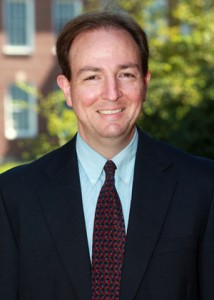 What does this have to do with Liberal Modernity?  What is wrong with public culture we now have?  What is the Culture of Death?  Are there defects that go at the deepest foundational levels of our culture that have led to this behavior?  Human dignity has to be recognized on all levels.  Who was Thomas Hobbes, English philosopher and proponent of absolute government?  His life and times? And what are the damaging effects  of his thought on the value of the human person?  What would be Bl. John Paul’s response?
What does this have to do with Liberal Modernity?  What is wrong with public culture we now have?  What is the Culture of Death?  Are there defects that go at the deepest foundational levels of our culture that have led to this behavior?  Human dignity has to be recognized on all levels.  Who was Thomas Hobbes, English philosopher and proponent of absolute government?  His life and times? And what are the damaging effects  of his thought on the value of the human person?  What would be Bl. John Paul’s response?
[powerpress]
The Way of Life, Carson Holloway examines the fundamental philosophers of modernity-from Hobbes to Toqueville-to suggest that John Paul II’s critique of modernity is intended not to reject, but to improve. Thus, claims Holloway, it is appropriate for liberal modernity to attend to the Pope’s thought, receiving it not as the attack of an enemy but as the criticism of a candid friend.
For other episodes in the series visit Dr. Holloway’s Discerning Hearts page
 Â
This series is based on Dr. Holloway’s book “The Way of Life”
Tags: catholic, catholic podcast, catholic prayer
This entry was posted on Friday, March 21st, 2014 at 12:30 am
You can follow any responses to this entry through the RSS 2.0 feed.
Episode 36- Regnum Novum: Bringing forth the New Evangelization through Catholic Social Teaching with Omar Gutierrez –  We continue the study of the “Compendium of the Social Doctrine of the Church” Â Chapter 9 “The International Community”
We continue the study of the “Compendium of the Social Doctrine of the Church” Â Chapter 9 “The International Community”
[powerpress]
CHAPTER NINE
THE INTERNATIONAL COMMUNITY
I. BIBLICAL ASPECTS
a. Unity of the human family
b. Jesus Christ, prototype and foundation of the new humanity
c. The universal vocation of Christianity
II. THE FUNDAMENTAL RULES OF THE INTERNATIONAL COMMUNITY
a. The international community and values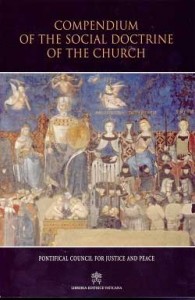 b. Relations based on harmony between the juridical and moral orders
b. Relations based on harmony between the juridical and moral orders
III. THE ORGANIZATION OF THE INTERNATIONAL COMMUNITY
a. The value of international organizations
b. The juridical personality of the Holy See
IV. INTERNATIONAL COOPERATION FOR DEVELOPMENT
a. Cooperation to guarantee the right to development
b. The fight against poverty
c. Foreign debt
We live at a very special time. The confluence of many things has brought forth the clear need to be able to articulate the Social Teaching of the Catholic Church in a way that is accessible and applicable. This is not to be an effort where high-minded theories are to be bandied about. Rather, this is a time of opportunity wherein we can apply the Social Doctrine to the concrete so as to bring about a New Kingdom, a Revolution. – Omar G.
Also visit Omar’s “Discerning Hearts” page Catholic Social Teaching 101
You can find Omar Gutierrez’s book here
In The Urging of Christ’s Love Omar Gutiérrez tells the stories of eleven people who lived their lives in pursuit of Christ Jesus. Each Saint, Blessed or Servant of God is considered in the context of Catholic Social Teaching. Then at the end of each chapter a prayer is offered and quotes from the Compendium of the Social Doctrine of the Church are provided in order to link the lessons we can learn from the saint’s life to Church teaching. By discovering some new saint friends, and rediscovering some old ones, The Urging of Christ’s Love presents Catholic Social Teaching in an accessible and important way.
Tags: catholic, catholic podcast, catholic prayer
This entry was posted on Monday, March 17th, 2014 at 10:01 am
You can follow any responses to this entry through the RSS 2.0 feed.
Dr. Benjamin Wiker once again brings to us a fascinating, well-researched, and informative historical review of the multiple factors which have brought us to the rise of  “secular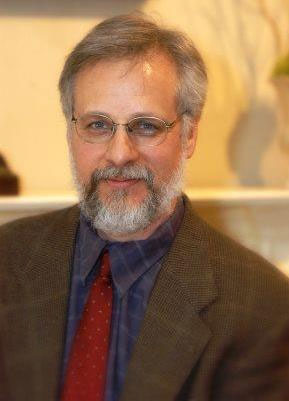 liberalism” in the United States.  This is not book about political parties, but rather the overall mindset that has infected every fabric of our society. He demonstrates the interplay between ideas and events. By looking at the teachings of certain influential philosophers (Machiavelli, Hobbes, Spinoza, Rousseau, and Locke) he demonstrates the “step-by-step” descent  which has led us to  point where various aspects of our culture lift up the “belief of unbelief”, a strange paradox which ultimately undermines the integrity of the moral life of a society.  Dr. Wiker is delightfully engaging to talk with.  I always look forward to reading his books…over and over again.
liberalism” in the United States.  This is not book about political parties, but rather the overall mindset that has infected every fabric of our society. He demonstrates the interplay between ideas and events. By looking at the teachings of certain influential philosophers (Machiavelli, Hobbes, Spinoza, Rousseau, and Locke) he demonstrates the “step-by-step” descent  which has led us to  point where various aspects of our culture lift up the “belief of unbelief”, a strange paradox which ultimately undermines the integrity of the moral life of a society.  Dr. Wiker is delightfully engaging to talk with.  I always look forward to reading his books…over and over again.
[powerpress]
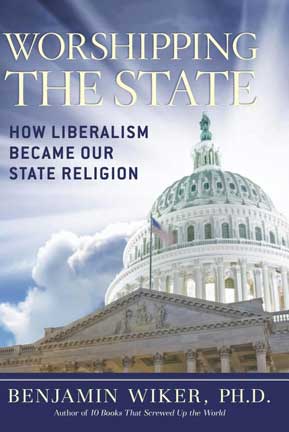 You can find the book here
You can find the book here
“Benjamin Wiker’s book is the most forthright and unblinking analysis yet published of the ubiquitous assault on religion in American society. Not only every religious believer but every believer in religious liberty should read it.’
James Hitchcock, Professor of History, St. Louis University and author of What is Secular Humanism?, The Recovery of the Sacred, and The Supreme Court and Religion in American Life.
Tags: Benjamin Wiker, liberty, religion, religious liberty
This entry was posted on Tuesday, April 30th, 2013 at 9:24 am
You can follow any responses to this entry through the RSS 2.0 feed.
“Christians as Political Animals: Taking the Measure of Modernity and Modern Democracy” 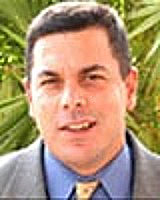 as fascinating work that looks at faith, reason, virtue, and the limits of modern liberty. Dr. Marc Guerra, professor of the graduate program at Ave Maria University, brings forward Augstine and Aquinas, as well as 20th century theologians and political philosophers, to help us recognize that Christian thought must keep a proper prospective in viewing the political realm, and not to surrender our call and response as members of the body of Christ. Is it heading stuff? Not at all, faith and reason anchored in Truth, is for all of us to understand…it should be the true rudder we use to navigate the political landscape.
as fascinating work that looks at faith, reason, virtue, and the limits of modern liberty. Dr. Marc Guerra, professor of the graduate program at Ave Maria University, brings forward Augstine and Aquinas, as well as 20th century theologians and political philosophers, to help us recognize that Christian thought must keep a proper prospective in viewing the political realm, and not to surrender our call and response as members of the body of Christ. Is it heading stuff? Not at all, faith and reason anchored in Truth, is for all of us to understand…it should be the true rudder we use to navigate the political landscape.
You can find Dr. Guerra’s book here
[powerpress]
Tags: catholic, catholic podcast, catholic prayer
This entry was posted on Monday, October 29th, 2012 at 12:01 am
You can follow any responses to this entry through the RSS 2.0 feed.
[powerpress]
This entry was posted on Sunday, July 15th, 2012 at 12:40 pm
You can follow any responses to this entry through the RSS 2.0 feed.
[powerpress]
This entry was posted on Sunday, July 15th, 2012 at 12:38 pm
You can follow any responses to this entry through the RSS 2.0 feed.
[powerpress]
This entry was posted on Sunday, July 15th, 2012 at 12:31 pm
You can follow any responses to this entry through the RSS 2.0 feed.

